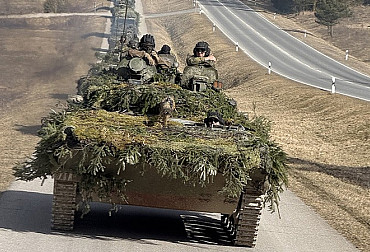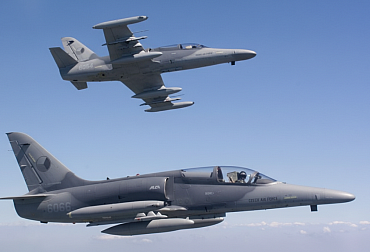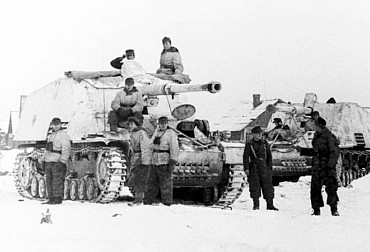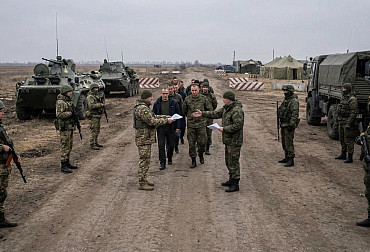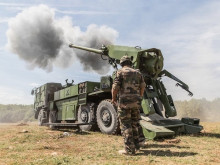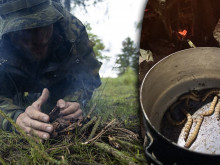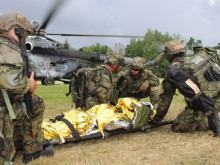Czech soldiers trained thousand of Ukrainians in Poland last year
Specialized mobile teams of Czech engineers, chemists, medics and snipers trained almost a thousand Ukrainian soldiers in Poland last year. Their mission, under the EUMAM (European Union Military Assistance Mission) banner, will continue this year, and in greater numbers. According to the commander of the first rotation, Captain Pavel Kince, the joint training is also beneficial for Czech soldiers.
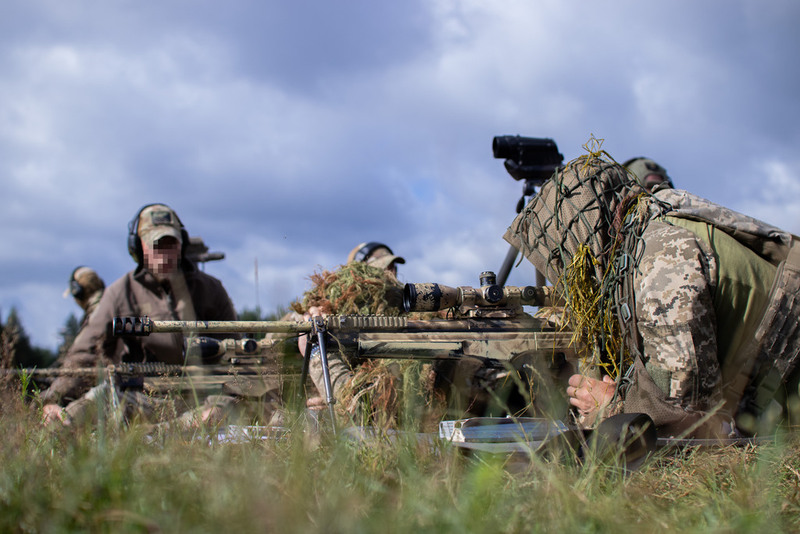
The deployment of the mobile teams was coordinated in cooperation with liaison officers of the Czech Army, who were integrated into the structure of the multinational training command of the Combined Arms Training - Command (CAT-C) mission in Poland.
The intensive training of one turn usually lasted five weeks
"Intensive training in engineer training and precision shooting lasted normally five weeks. One month was devoted to training, and the last week was the final exercise to verify the acquired skills at the level of company alignment," explained Captain Pavel Kinc.
The training of precision shooters focused on basic theory from calculating distance, ballistic curves, weapon science to actual shooting with available weapons, which was provided by the Polish Army. The training included not only the shooting, but all the associated tasks of a sniper after receiving an assignment, such as planning a move, moving to a concealed position, observing the environment, and finally returning to the unit.
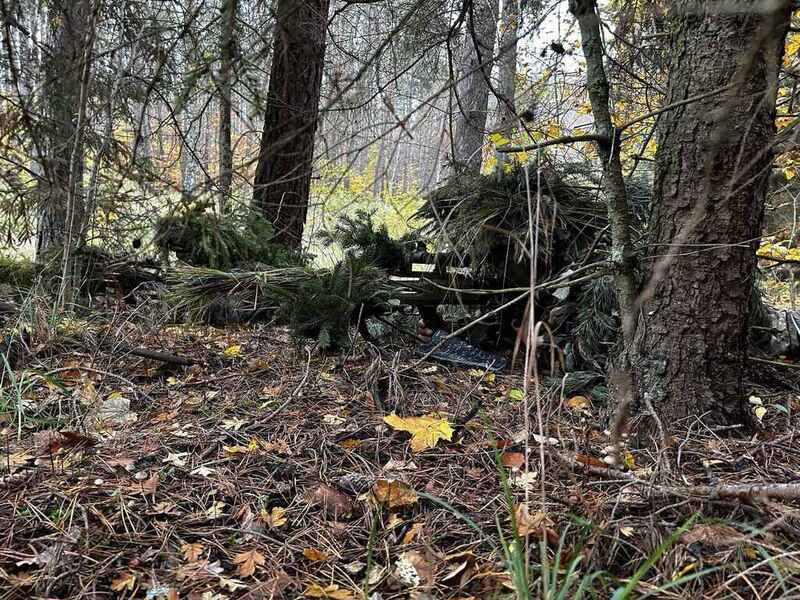
The theory of engineer training was accompanied by exercises with dummies, training ammunition and ammunition. Each week, there was also a live tear-down, during which Ukrainian soldiers could test practically all skills.
Medical and chemical training was conducted in weekly blocks. Medical training was conducted according to the standard of NATO armies in the framework of TCCC/CLS (Tactical Combat Causalty Care/ Combat Life Saver) training. Instructors focused practice on providing first aid in the field with emphasis on treating gunshot wounds and saving life. The training also took place at night, when Ukrainian soldiers simulated stressful conditions such as gunfire, loud noise or smoke. Situations where there are more wounded than medics (MASCAL) or there is a shortage of medical supplies were also practiced.
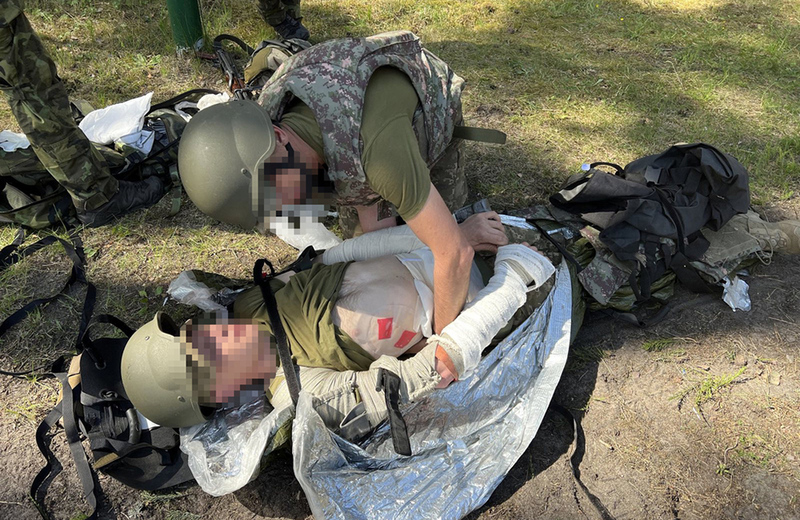
Czech chemists were integrated into a Polish team specialising in the treatment of persons affected by weapons of mass destruction (WMD). The Czechs were responsible for areas directly related to CBRN issues (decontamination, use of detection devices and personal protective equipment). The Poles were responsible for the treatment of persons affected by WMD. The training always consisted of theory and practice, culminating in a CBRN incident response drill, during which Ukrainian soldiers demonstrated their ability to evacuate an injured person from a contaminated area, extricate him/her from personal protective equipment and decontaminate the injured person using a light decontamination site. Finally, they had to provide medical care to the wounded person and load him onto a removal vehicle.
Ukrainian mechanized and infantry battalions were allocated for training. From the very beginning, the Ukrainian soldiers perceived the Czech instructors very positively. This was mainly due to their commitment, motivation, readiness for training and ability to teach. "In the vast majority of cases, the Ukrainians literally "devoured" all the information and were eager to learn as much as possible so that they would be prepared," said Pavel Kinc, the commander of the first company.
Sharing experiences helps
Joint exercises, exchange of knowledge and skills and sharing of experience directly from wartime conflict help to update our own operational procedures in the event of a real conflict and further help to create sustainable solutions, prevent future conflicts and strengthen global cooperation for peace and security in Europe.
According to the commander of the first rotation, the deployment in Poland was a big unknown in the early days. Gradually, however, a workable training system was set up that suited both alliance partners and Ukrainian troops. "For the Polish side, we were an indispensable element of the training, especially in terms of jointly strengthening the EU's efforts to secure the Armed Forces of Ukraine's own defence capabilities. Polish commanders appreciated our organisation and professional approach to training," said Captain Pavel Kinc in conclusion.
The 2nd Task Force took over the patronage of the training
The activities of the mobile training teams will continue in Poland this year. In addition to the confirmation of the continuation of the actual training of the Armed Forces of Ukraine within EUMAM UA, the number of instructors will be increased. "The proposal maintains the current numbers for the stay, i.e. up to 800 persons at any one time. It is newly expanded to include instructors from NATO countries for training beyond the EU Assistance Mission to Ukraine," Defence Minister Jana Černochová said at the end of last year, adding that the number of instructors of the Czech Army who can operate on the territory of EU countries within the EU Assistance Mission will be increased from the current 55 to 70 persons. This is mainly due to the need to deploy a higher number of interpreters, specialists in selected training teams and soldiers providing logistical support to mobile teams during training outside the Czech Republic. The proposal also allows for the involvement of up to 20 military instructors in the training of Ukrainian soldiers on the territory of NATO countries outside the EU Assistance Mission.
"The financial expenses related to the stay of the armed forces of other states on the territory of the Czech Republic for the purpose of training members of the armed forces of Ukraine in 2024 are estimated at CZK 252 million," Defence Minister Jana Černochová said last December, according to which the foreign missions confirm the position of the Czech Republic as a responsible ally and partner and also serve to improve the condition and functionality of Czech military units.
The Czech army is thus sending the second rotation of this mission this year and will continue to provide training and mentoring to Ukrainian soldiers in order to increase their operational effectiveness and readiness. The core of Task Force 2 is made up of soldiers from the 43rd Airborne Regiment in Chrudim, who, in addition to providing command and logistical support to the task force, are deploying training teams of medics and snipers. The task force is further complemented by specialists in protection against weapons of mass destruction from the 31st Radiation, Chemical and Biological Protection Regiment in Liberec and engineers from the 15th Engineer Regiment, specifically from the 153rd Engineer Battalion in Olomouc.
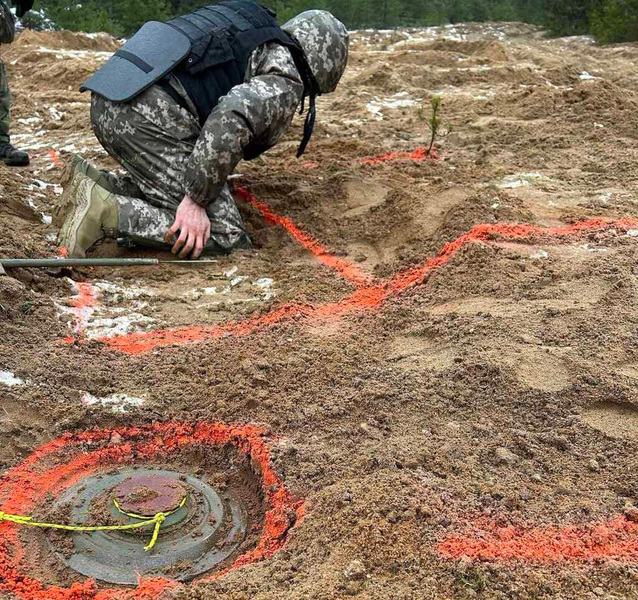
The structure of the composition of the mobile training module remains the same. The Czech soldiers of the engineer and medical mobile team and the sniper team have already left for their first training tour in the past few days. The mobile chemistry team will also be deployed at the end of January.
"We have started another year of operation of the mobile module, which the Czech Army is deploying as part of the EU Assistance Mission in support of Ukraine. Our task will be to continue to provide technical assistance, training and education to Ukrainian soldiers. We will help to improve their military skills and their ability to respond quickly and flexibly to various security challenges. This includes not only training itself, but also creating a space for exchange of experience and knowledge," said Captain Ondřej Kučera, Commander of the second rotation.
Czech soldiers have already trained about 3,500 Ukrainian colleagues on our territory. Last year, the Defence Committee also unanimously agreed on the training of Ukrainian soldiers and found the assistance to Ukraine not only in the form of training to be exemplary.











